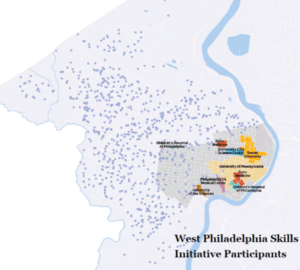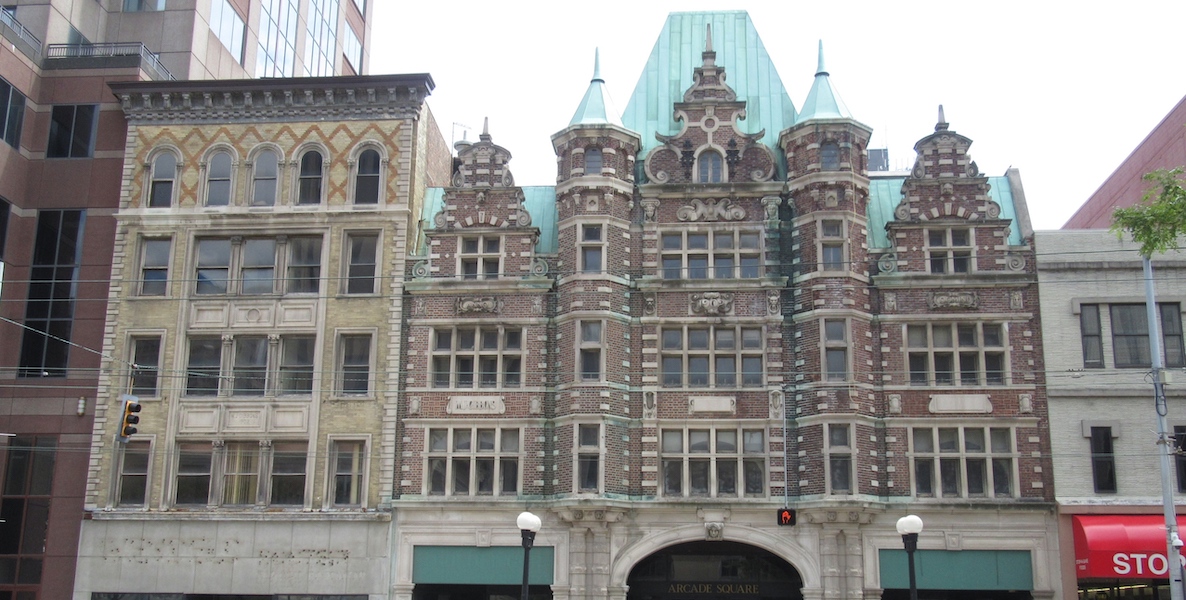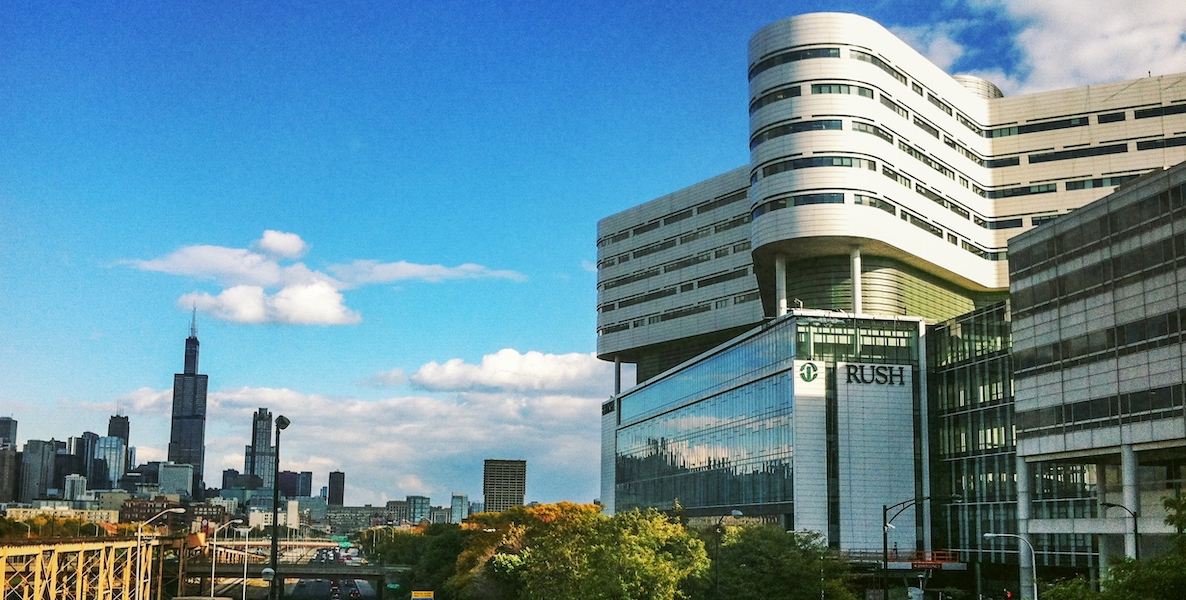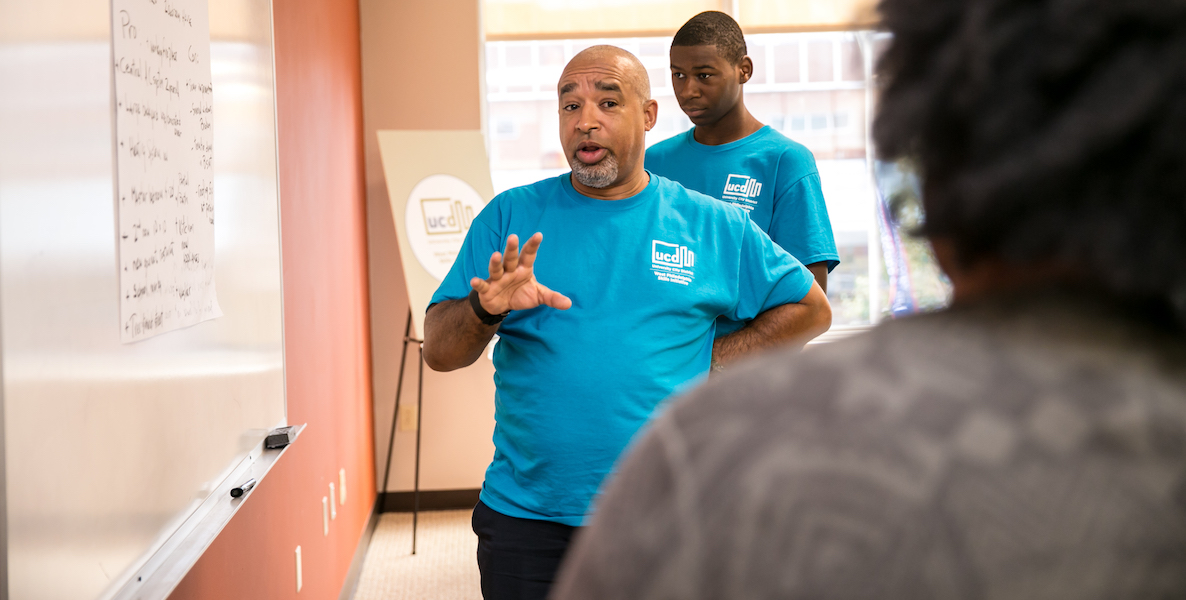Last week, the Nowak Metro Finance Lab at Drexel University, Accelerator for America and the Centre for Public Impact released West Philadelphia Skills Initiative (WPSI): A Model for Urban Workforce Development, a study we conducted along with Dan Vogel at the Centre for Public Impact and guided by Matt Bergheiser and Sarah Steltz at University City District.
![]() With City Cases like these, we seek to provide a road map to scale and replicate the institutional and financing models that have driven large-scale urban transformation across the United States and beyond.
With City Cases like these, we seek to provide a road map to scale and replicate the institutional and financing models that have driven large-scale urban transformation across the United States and beyond.
By demonstrating how reorganizing public, private and civic resources in creative ways can build community wealth, we aim to contribute to a new paradigm for developing inclusive cities.
WPSI was founded in 2011 by the University City District (UCD), an economic development nonprofit modeled like a Business Improvement District (BID).
Why was WPSI formed?
UCD was formed to change the trajectory of West Philly. In 1997, years of increasing poverty, blight and crime culminated in the murder of a grad student just off the University of Pennsylvania’s campus. Local leaders created UCD to coordinate trash removal and safety ambassador services to make the neighborhood “clean and safe.”
Today, UCD also builds public spaces, coordinates economic development, and promotes University City to a wide audience.
In 2009, UCD and its board identified two critical problems: too many unfilled or high turnover positions at University City’s largest employers, and too many unemployed West Philadelphians. UCD founded WPSI to create a pipeline of unemployed residents to these jobs—moving residents into higher-wage jobs and reducing turnover and hiring costs for WPSI’s employer partners.
Today, access to good jobs is not equitable, and the technological advancements changing the future of work will exacerbate existing inequalities. Cities’ growth depends on creating flexible pathways to good, local jobs.
Launched in 2011, this extremely successful workforce development program placed 97 percent of 2019 graduates (29 percent higher than the last reported public system rates). Overall, WPSI has connected 530 West Philadelphians, a remarkable 95 percent of graduates, to full-time positions with access to benefits or with a direct path to full-time employment. Graduates earn 25 percent higher wages on average, keeping $37 million in the community over the last 8 years. At one employer, WPSI hires were 36 percent more likely to stay two or more years than traditional hires, reducing HR costs.
![]() Importantly, WPSI links employers to a traditionally hard-to-reach and underutilized labor pool—residents who have been unemployed for 33 weeks on average, including some returning from incarceration.
Importantly, WPSI links employers to a traditionally hard-to-reach and underutilized labor pool—residents who have been unemployed for 33 weeks on average, including some returning from incarceration.
WPSI’s best-in-class model innovative practices can be scaled and replicated in cities across the U.S. Its groundbreaking formula of employer-driven skill-building shows how to leverage global innovation districts to keep income in some of our most disadvantaged neighborhoods, as a first step towards community wealth building.

What’s unique about WPSI?
Three unique components enable WPSI’s success and should be considered when adapting the model or reforming existing programs. These key enabling features are:
- They provide staff with the resources and freedom to continuously improve services: All staff have professional experience solving problems in workforce development or HR departments in Philadelphia. The majority of WPSI’s funding comes from philanthropies as general program support grants, giving staff the flexibility to allocate funding as needed. The minimal bureaucracy within the small team enables them to control the process directly, iterate on program structure, and offer bespoke services to their clients.
- They invest in rigorous, individualized program design and execution: Unlike traditional “train and pray” models (i.e., teaching general skills and hoping participants find employment), WPSI prepares candidates for open positions with local employers. Training focuses on the foundational skills needed in a demanding professional environment and the technical skills specific to the position. During the program, participants have supports (e.g., financial stipend, one-on-one coaching), but are exited if performance standards are not met. Employers note that WPSI graduates are more professional and committed than typical hires.
- They prioritize fostering relationships with local residents and employers: WPSI has a reputation for delivering consistently excellent services that meet employers’ specific needs. As an intermediary, WPSI can navigate and leverage both client and public sectors resources. Additionally, UCD and WPSI have spent years building credibility with the community. Residents trust WPSI to act as their ambassador to large institutions, building social capital that benefits the entire community.
The WPSI story teaches cities an overarching lesson: Effective intermediaries unlock resources for all.
Today, access to good jobs is not equitable, and the technological advancements changing the future of work will exacerbate existing inequalities. Cities’ growth depends on creating flexible pathways to good, local jobs.
Effective intermediaries like WPSI can provide a framework for inclusive economic growth. They can foster collaboration across stakeholders—such as governments, businesses, universities, philanthropies, and residents—and reimagine the roles of these institutions to create a shared vision for their communities. With the right combination of resourcing and flexibility, these intermediaries can drive intentional innovation and positive impact.
How can the model be replicated and scaled?
As with any urban transformation, parts of the WPSI story are unique to Philadelphia, including its particular civic landscape, moment of growth, and appetite for innovation. But we believe other cities can replicate core elements of the WPSI model to ensure people can access and thrive within good jobs. In fact, UCD recently received a $1.5M grant from J.P. Morgan to build a place-based network of employer-driven workforce programs around Temple University in North Philly and in the business campuses of Navy Yard to the south. (WPSI also recently received $895,000 in grants from the Connelly Foundation and William Penn Foundation.)
This model uses a trusted intermediary to bring together well-resourced institutions and low-income residents to inclusively develop their neighborhood in a way that no single actor could do on its own. The WPSI model is particularly appropriate in the context of urban cores with a geographic concentration of:
- Strong anchor employers, such as universities and hospitals, experiencing chronic labor shortages or unsustainably high rates of turnover in entry-level professional jobs
- A large jobless or underemployed population who are eager to connect to high quality work but face barriers to employment
- A central intermediary to broker strategic relationships. This could be a local Workforce Investment Board, Business or Neighborhood Improvement District, or Chamber of Commerce, as long as the intermediary can develop trust with and serve both jobseekers and employers.
Looking beyond West Philadelphia, this case study highlights practices that workforce development institutions can adopt to better leverage clusters of anchor institutions in cities across the U.S. Other crucial considerations for replication include removing barriers to participation, building credibility through local partnerships, and maintaining sufficient funding.
As cities redevelop their cores, institutions seeking to offer opportunity and high quality of life to both long-term and new residents will face new challenges. With the Opportunity Zones incentive, creative institutions and intermediaries are more empowered than ever to direct investments to projects that fuel equitable economic growth. We hope these City Cases contribute to a field of study that accelerates and amplifies this positive dynamic.
Bruce Katz is the director of the new Nowak Metro Finance Lab at Drexel University, created to help cities design new institutions and mechanisms that harness public, private and civic capital for transformative investment. Megan Humes is a senior associate with the Centre for Public Impact (CPI), a nonprofit founded by Boston Consulting Group.
Want more? Check out these related articles:
- What is inclusive wealth? Bruce Katz explains.
- Why an engaged business community is key to economic growth in Philly
- The unanticipated effects of opportunity zones
- What Philly can learn about inclusion from the Illinois Medical District









